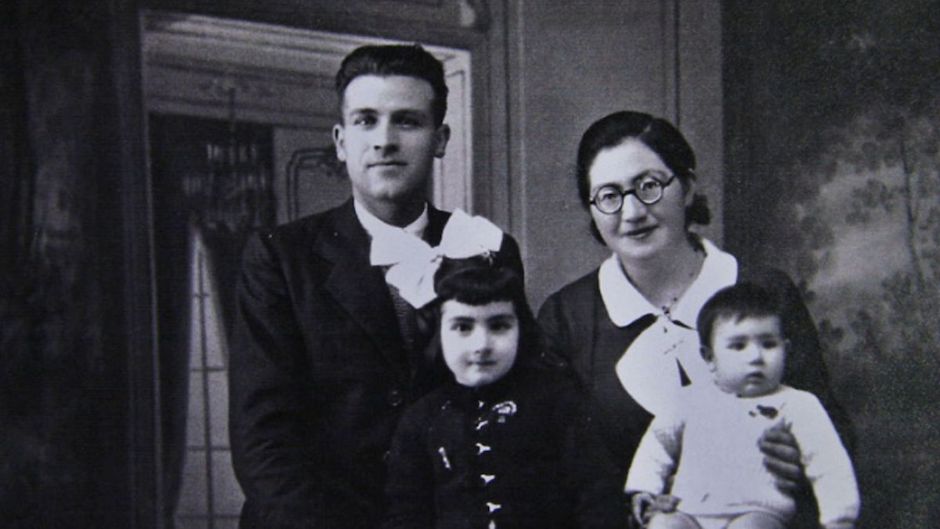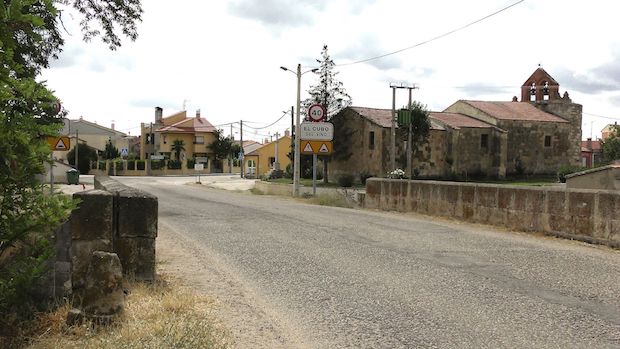Investigators search for the remains of Protestant pastor executed in Spanish Civil War
An investigation looks for the mass grave where Atilano Coco, a Spanish pastor murdered by Franco's military in 1936, might be buried.
Protestante Digital · SALAMANCA · 18 FEBRUARY 2021 · 17:33 CET

The Spanish Civil War took place from 1936 to 1939. General Francisco Franco entered Madrid and declared victory on 1 April 1939 and started a dictatorship that lasted 40 years.
During that time, Roman Catholicism was the only official religion in Spain. Believers from other faiths could not express their beliefs in public, many were persecuted and arrested and places of worship were vandalised and destroyed.
Protestant pastor Atilano Coco
That persecution already started during the war. One example is Atilano Coco, then the only Protestant pastor of the Spanish city of Salamanca. He was arrested by Franco's military on July 1936, accused of “false news propaganda", imprisoned and executed.
Now, an investigation points out that the remains of Coco could be in a mass grave located on a private estate in the town of El Cubo de Tierra del Vino.
David Hernández, representative of the association Salamanca Memory and Justice, says that “while investigating, several elderly neighbours led us to the same spot in the village where, since their childhood, they knew that a group of people had been killed and buried”.
“This information does not give us absolute certainty that we are going to find them there, but it is an important starting point to undertake the physical search for the mass grave”, says the association.
This is not the first time that this location is named as the place where Coco's remains might be. Eleven years ago, the Spanish Reformed Episcopal Church asked permission from the city council to exhume his remains. Now, the Salamanca Memory and Justice has received a grant of 8,000 Euros from the regional government for the investigation.
“We are certain that he killed on the road”
“We have a document that supports the disappearance of Atilano Coco, documentation of his time in the prison of Salamanca, and the document that shows that he was 'released' along with a group of men on a specific date”, says Hernández.
The representative of Salamanca Memory and Justice explains that “the military governor requested or gave permission for a group of people to be released or transferred from prison, when what they really planned was to kill them”.
“We are certain that when the group of prisoners to which Atilano Coco belonged was released from prison, they were transferred and killed on the road. According to one of the oral informants, the area where the mass grave might be located was once cultivated, but at that time was respected and left uncultivated”.

A sensitive investigation
The owner of the estate targeted by Salamanca Memory and Justice has already allowed excavation works on the mass grave, which are expected to begin this summer by archaeologists and biologists from the Aranzadi Scientific Society.
“This initial phase is the search, exhumation and study of the remains. The search for the grave is the most uncertain part. The enclosed terrain is explored with different means, such as metal detectors or digging with an excavator, to detect signs of the presence of the mass grave”.
If it is located, “the exhumation begins. We have to exhume all the remains from the grave with great care, recording everything, because it is the evidence and the data that will be used to reconstruct everything that happened to them”, points out Hernandez.
Afterwards, “the anthropologists will take the exhumed remains to the laboratory. With the bones we can find out the sex, the age at the time of death, possible pathologies that indicate whether they were tortured or that help us to identify them, and if we have close relatives with whom to compare the samples, we can carry out DNA tests to identify them”, he adds.
“After this, the identified remains are handed over to the families who request them, and the association takes charge of those who are not requested, to give them a dignified burial in a space we have in the Salamanca cemetery”, explains Hernandez.
Why Atilano Coco?
The association recognises that “all information must always be taken with caution, as memory is sometimes fragile, many years have passed and the landscape has changed”.
However, they stress that “in this case, it is not just one person who has led us to this place, but several, which is already an indication that the information may be accurate”.
The investigation could find Coco's remains, even though they are not the reason for the search. “We have a search request from a relative of one of the people who was on the group that left prison with Atilano Coco”, underlines Hernández,
Although the organisation “puts the same effort into this project as into any other”, they are “aware of the importance of the figure of Atilano and the major repercussions it will have. For the Anglican Church it would be very important to find his remains”.
According to Hernandez, “the most obvious expectation is to find the grave and to be able to recover the remains of all the people buried there in a good state of preservation. Each exhumed grave closes one of the thousands of wounds that are still open in our country”.
“We cannot grow as a modern democracy while overlooking and forgetting the thousands of people who are still missing in ditches and mass graves”, he concludes.
Published in: Evangelical Focus - cities - Investigators search for the remains of Protestant pastor executed in Spanish Civil War
